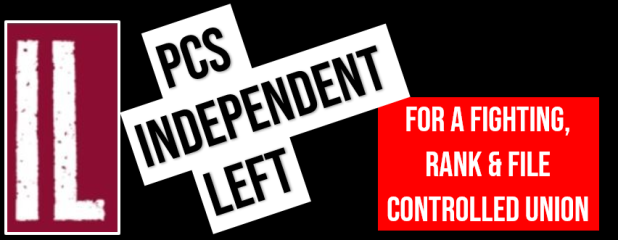
Trade Unionists could not have helped but feel a certain pride in our movement when the National Education Union (NEU) announced its intention to advise its members to invoke Section 44 of the Employment rights Act and refuse to return to teach in schools.
This action was explicitly stated as a protective measure for the health and safety not just of education workers themselves, but of their pupils, their families and our wider community. Precisely the kind of spirit in action that the workers’ movement needs.
The subsequent mass online meetings – the largest in British trade union history – and the humiliating climb down over school openings by the government the following day should imbue us all with confidence and pride in a significant victory.
Since then, trade union leaders, including those in PCS have rightfully heralded the action. Unfortunately, when the time came for it in civil service workplaces during the first lockdown, the leadership of PCS did not act with the same militancy and bravery, and thwarted attempts by some of us on the union’s national executive to propose similar action to that of the NEU.
At the start of the pandemic, the National Executive Committee met to discuss the unions approach. This included agreeing a strategy to defend members who were coming under pressure to continue to commute to and work in offices.
There was much discussion about the use of Section 44. There was unanimous agreement that the union should make members aware of their rights under the act. And in fairness, subsequent bulletins from the union did just that. Unfortunately, it stopped far short of advocating and agitating for collective use of the legislation and was clear that the union leadership and bureaucracy accepted a conservative reading of the act.
The NEU strategy was explicitly one of collective action. The NEU leadership knew that caution and conservatism in any approach or communication to members would breed under-confidence in members to take action and therefore be self-defeating.
In literature and mass online meetings the advice was that if possible, school branches should send a single, collective letter, signed by as many staff as possible, to provide protection in numbers and to mitigate against members being picked-off one by one. A pre-emptive statement of the principle, An Injury to One is an Injury to All.
When IL members of the NEC argued for a similar collective strategy in PCS on both the 29 April and 13 May, our proposals calling for ‘Support for workers individually or collectively who refuse to return to offices on the basis of safety by providing them with legal defence under section 44 of the Employment Rights Act’, was voted down. Any move towards collectivising Section 44, we were told by FTO’s and the Left Unity leadership, was legally untested and irresponsible to attempt.
We’d have to wait until the NEU had the courage to try it.
We are glad the leadership now appears, superficially at least, to accept this and we hope in future will take the brave lead from the NEU to push the envelope regarding the legislation.
Trade Unions have a responsibility to be honest with members about the limitations of the law, but they also need to inspire confidence in their members to fight and win. Continued insistence to present the most conservative interpretation of the law rather than promoting militant, novel and creative ways of taking action despite it is guaranteed to result in defeat. Defeat we can not afford when the literal lives of our members and their families are concerned.
For PCS members, the handling of the union’s response to the pandemic is going to be a key issue in the upcoming Group and National Executive elections.
We have consistently argued, as above, for a more combative, member-led strategy to protect the health and safety of our members during this period. We believe the severity of the situation continues to warrant it.
As we previously reported, the NEC has adopted a strategy for collective action. Whilst this suits an ongoing or longer term issue, it is contingent on a lawful industrial action ballot process which takes six weeks at a minimum. There is still the need to give direct advice to members to collectively utilise their Section 44 rights and to come out in support of those who do so, as for example the UVW union have been doing, so that we can effectively react to the most urgent situations.
In the DWP London Region our members and supporters have been central in organising hundreds of new Work Coach recruits to fight for the right to be able to work from home and have proactively drafted Section 44 templates for members in offices where management are still holding out.
If you agree with us, please support our candidates for election at your branch AGM’s and vote for and encourage colleagues to vote them when ballots land later in the year.

Pingback: Report from the NEC of 21 January | PCS Independent Left